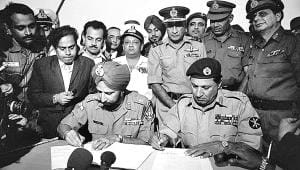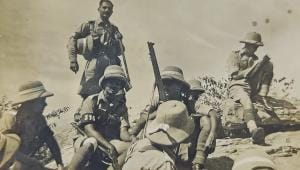Prakash Bhandari
Sagat Singh — An unsung hero
Forty-eight years ago, in the cold month of December, over 3,500 brave Indian soldiers captured 93,000 Pakistani prisoners who were made prisoners of war (POW) during the Liberation War in 1971, which ended the war in 14 days of a multi-front military engagement. A new nation was born after the valiant fight put up by the Freedom Fighters and Indian Army at the cost of much bloodshed.
15 December 2019, 18:00 PM
15 December 2019, 18:00 PM
Lt Jamshed Manekshaw: An unsung hero of World War II
The world knows late Field Marshal Sam Manekshaw as the man who, as the chief of the Indian army in the 1971 Indo-Pakistan War following the Bangladesh Liberation War, made great contributions to the creation of Bangladesh.
24 November 2019, 18:00 PM
24 November 2019, 18:00 PM
Rubies uncut
The king of all gemstones — red, rare and regal. It's a stone, which has been a favourite of the kings and the queens, and above all of gods. With its magnificent colour and lustre, it is one of the hardest gemstone known to man.
6 November 2017, 18:00 PM
6 November 2017, 18:00 PM
Genocide by any other name...
"The Myanmar government's failure to protect the Rohingyas makes a strong case for an intervention by the international community, either through taking measures stated in the R2P framework or by involving regional powers like China and India.” That is easier said than done.
12 October 2017, 18:00 PM
12 October 2017, 18:00 PM





